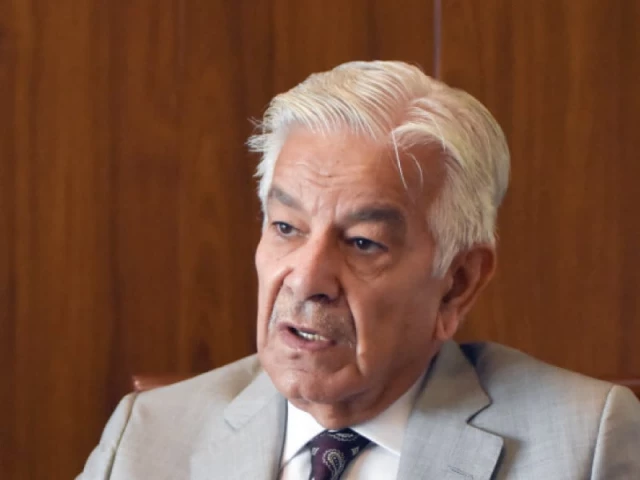Islamabad:
The prolonged hybrid system now seems to be fully matured. Surprisingly, it is no longer a secret, but being openly approved and celebrated. With a sitting federal minister praising the hybrid system as a success model and the military boss who receives global limelight, which is usually reserved for elected leaders, it seems that the powerful stakeholders are no longer behind the curtain, but is now at the center.
“The revival of the economy, India’s defeat, improvement in ties with the United States, all these revolutionary changes were made possible by the cooperation between Prime Minister Shehbaz Sharif and Field Marshal Asim Munir and the excellent relations between Islamabad and Rawal Pindi,” wrote Defense Minister Khawaja Asif on X a few days ago.
The minister’s recent remarks may have raised the eyebrows, but to some political analysts they simply confirmed what has long been obvious: the hybrid regime is not only real; It thrives. Ironically, the hybrid system was once an expression that was used carefully, but is now presented as a practical solution to Pakistan’s political and economic instability, among other things.
With increasingly blurred civilian and military roles, they say, it seems that the hybrid model has taken a more formal and accepted form, where political legitimacy partly comes from the ballot and virtually how close one is to rawalpindi.
Once CTI advanced it, and now PML-N and PPP believe that their survival is not in opposing the new system, but to become part of it. Apparently, decades of confrontation, incompatibility, prisons, exile and political technique seem to have simply gone to waste.
To the question of whether it was a permanent shift, well -known political analyst and journalist Raza Rumi said that duration is a fragile word in Pakistan, to add “but yes, what we witness is not just a moment – it is the slow cementing of a hybrid power structure.”
For decades, said the prominent analyst, the military has been a “guardian” of national interest, but now the lines are no longer blurred – they are drawn. “Civilians remain in office, but power is increasingly lying elsewhere,” said Rumi, “the hybrid model is no longer an ad hoc event; it is an institutionalized reality. It has uniforms, protocols and now even diplomatic portfolios.” Whether this is permanent, he said, depends not only on domestic dynamics, but also on how much people and institutions are willing to contest – or internalize – this imbalance.
To the question of Field Marshals Solo meeting with US President Donald Trump, Rumi said titles matter – especially when they evoke authority beyond the battlefield. “A” Field Marshal “is not just a rank; it’s a statement,” he said. He explained that it carries historical resonance, strategic stature and in Pakistan’s case, a nod to where real decision making often lives. “So when such a figure holds a solo meeting with Donald Trump, bypassing the usual diplomatic Playbook, it’s not entirely surprising,” Rumi said. One could even argue that in a region where security concerns often define foreign policy, he added is the presence of a military figure at the upper table pragmatically.
But let’s not pretend that it is benign, Rumi continued, the fact that the chosen prime minister had to give a follow-up declaration of declaration his invitation to Trump and express hope of a “earliest convenience” meeting the unpleasant truth: Civil management performs the role but does not command the limelight. “The choreography of power is increasingly obvious,” he said, adding Pakistan’s international engagements now often reflect the hybrid order at home, where optics and authority are carefully controlled – and not always by those with electoral mandates.
President of the Pakistan Institute of Legislative Development and Transparency (Pildat), Ahmed Bilal Mehboob, believes that the main reason for the current perceived “military ascent” is the bitter confrontation between PTI and the government and anti-military management position of PTI. “As these confrontations die down through dialogue and tolerance of political differences,” said the pilde chief, who keeps an eye on political development in and outside parliament, “I think the situation will normalize.”
In a commentary on Field Marshals one-to-one meeting with Trump and civil authority, Mehboob said that the recent Trump-Munir meeting is extraordinary and unprecedented, saying that it indicates the increasing importance of Pakistani military in the context of the Pakinomist-political environment and the recognition of Pakistan military’s recent campaign against terrorists, including the arrest and transfer of a transfer of a terrorist and transfer of terrorist, terrorist, terrorism, of killing American in Afghanistan. “I hope this will only be a unique development, but President Trump is known for taking unconventional steps,” he said.
To the question of whether political parties embraced the hybrid model of necessity or election, and what kind of elections should people expect in the future, Mehboob said, while answering negatively to the first question that the political parties tried to live with the current realities in the hope that these are temporary conditions. “It is imperative that political parties, including PTI, have a serious dialogue focusing on creating necessary conditions for free and fair elections in the future,” he said.
In addition, Mehboob concluded that if the political parties focus on this dialogue and take a ramp down to reduce the prevailing confrontation, there will be greater chances of a fair choice in the future.



